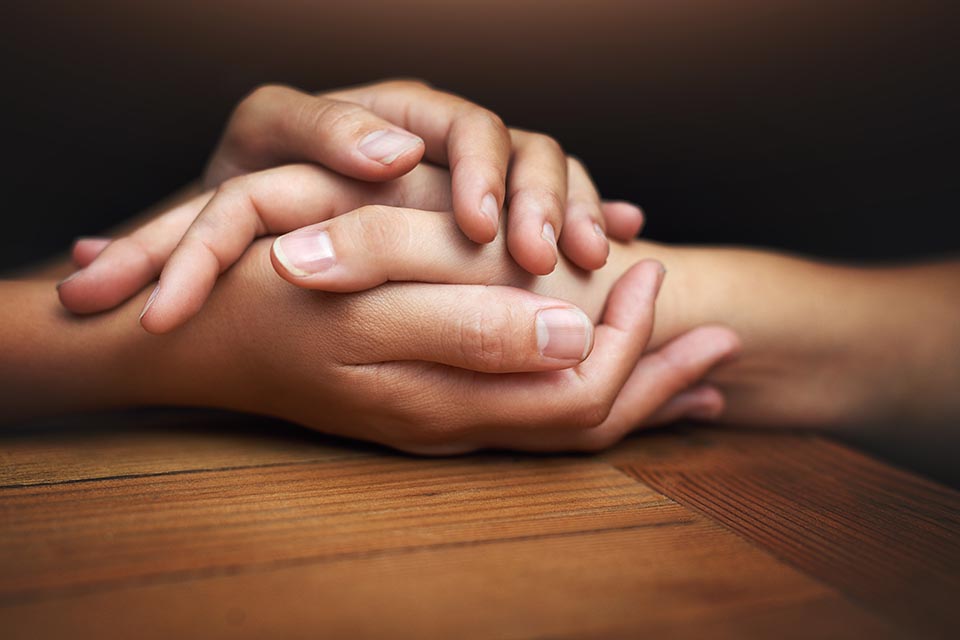We use cookies to ensure you get the best experience on our website. Detailed information

Select a Country

The initial phase of recovery from addiction begins with discontinuing the use of the substance, allowing the body to start detoxifying. The process of staying away from the substance follows the cessation. Staying away from the substance may not always be easy, and significant changes in one's life may be necessary.
Quitting the substance is the first step towards recovery but not sufficient on its own. Recovery requires change. There are things in a person's self and life that need to be changed.
Addiction develops in a person over time. Just as the development of addiction requires a process, overcoming addiction also requires a process of change. People often fear treatment at this point because change is intimidating. When individuals are required to change their behaviors, they may step back. At this point, motivation towards change is crucial. The motivation process is an integral part of treatment.

For an individual, simply quitting the substance and trying to distance oneself without entering the process of change provides temporary solutions. It does not offer a permanent solution. Statements commonly heard from individuals with addiction, such as "they quit for a month but then started again," are directly related to this. When a person quits the substance, they may act as if the whole process is complete, but the crucial aspect is the effort put forth to avoid relapse.
The initial phase of recovery from addiction begins with discontinuing the use of the substance, allowing the body to start detoxifying. The process of staying away from the substance follows the cessation. Staying away from the substance may not always be easy, and significant changes in one's life may be necessary. For example, staying away from environments where substances are used, not meeting friends who use substances, changing phone numbers to prevent those who supply substances from contacting them, etc. A person might even consider changing their living environment.
Adapting to these changes and sustaining them is crucial for the continuity of treatment. During the process of quitting the substance, one should avoid any situation that might remind them of the substance, even the smallest one. Because even if a person quits the substance themselves, the brain continues to desire it. Until the person learns to resist the brain's desires, what needs to be done is to stay away from dangers.
The process of recovery should be seen as a period in which an individual integrates and changes into a substance-free life. The person begins to understand and recognize themselves, attempting to change factors that led to substance use. They also start dealing with the mental issues they face. Thus, they learn not to seek solutions for their mental problems in substances. They learn about the effects of substances on themselves and acquire the necessary knowledge and skills to avoid relapse. They learn to resist the brain's desire for substances. Thus, they prepare themselves for the external world, as there will always be triggering factors and risks in life.
The period after quitting substance use is as important as the process of quitting itself. The term used for an individual staying away from substances for a while and then returning to use is called 'relapse.' To prevent relapse, it is essential to know the phases of relapse and recognize its signals. The period when the person does not use alcohol or substances is called the 'Recovery Period.' If, thinking that "once won't hurt," the person uses substances even once, they have transitioned from the Recovery Period to the 'Testing Period.' Continuing to use, thinking that the usage is under control, is the 'Continued Testing Period.' When, after a while, the person reaches the frequency and quantities they used before, it is referred to as the 'Resuming Regular Use Period.'
Relapse does not happen immediately; it occurs after specific stages, and signals are given to the person before it happens. Some of these signals include starting to dream about alcohol or substances, reconnecting with the old environment of substance use, neglecting personal care, gaining excessive self-confidence, and thinking positively about alcohol or substances. Avoiding risky environments, recognizing the desire for alcohol or substances, and developing coping mechanisms for dealing with this desire are the primary methods to prevent relapse.
Recovery from addiction may take a long time. Experiencing relapse during the recovery period does not mean that the person cannot quit substances or alcohol. What matters is that when the risk of relapse arises, the person seeks help from professionals and believes that they can stop. In such situations, individuals should not blame or criticize themselves. Changing the environment and giving due importance to this situation can eliminate the risk of relapse.
The compliance of the individual with the treatment and their motivation are crucial in addiction treatment. People with alcohol and substance use disorder often think there is no treatment for this disease. This is a misconception! Being willing and determined makes treatment possible.
Addiction is similar to diabetes; it cannot be completely cured, but it can be managed. Research has shown that during the treatment compliance process, individuals with diabetes are less compliant with treatment compared to people with drug use disorder. However, in drug use, relapse is not only about physical problems. Social, economic, and legal problems also accompany it. Compared to other diseases, drug use becomes more critical as it causes significant destruction in the individual and family, reducing the quality of life.
The treatment of addiction requires a long process. The longer an individual stays in treatment, the higher the chances of success. To continue a successful process, the person needs to remind themselves that they are dependent, not interrupt the treatment process, and the family needs to adapt to the changes in the person's life. Therefore, family support has a significant impact on the process.
The type of treatment varies from person to person. Therefore, the most suitable treatment method should be applied, taking into account what the person needs, their environment, and the risks they are exposed to. It should not be forgotten that receiving professional support during the treatment process increases the chances of recovery.
To answer your questions in the fields of Addiction and Public Health...

All rights are reserved 2026 © International Federation of Green Cresent
Personal Data Protection Policy
Terms and Conditions
Copyright 2026 © International Federation of Green Cresent